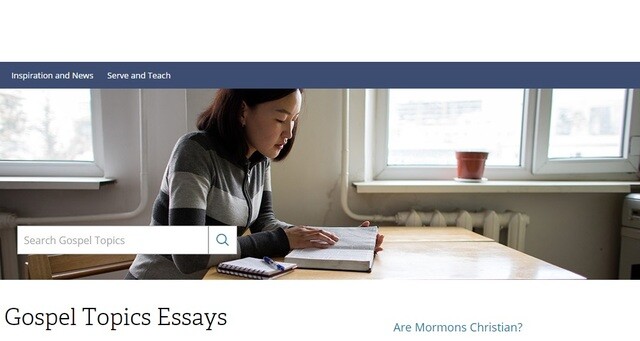MR says: See what interesting insights were added to the Church's in-depth essay which explores the role of race and the priesthood in our Church History.
It’s incredibly easy these days to update online content. It’s also relatively easy to compare updated content to older content, especially with the help of that magical “Way Back Machine.” When I was told the “Race and the Priesthood” essay on the Church’s excellent Gospel Topics section of the website was updated it only took a few minutes to make a comparison using that website and Microsoft Word.
But before I continue, let me say if you haven’t read the essay already, I urge you to read the whole thing rather than focusing on the parts that were updated merely to verify if they comport with your political, religious, or cultural sensibilities. Even if you have already read it, you might read it in full again because we could all use a refresher.
I’ll wait for you, continuing when you get back.
OK, looks like you’re back. Excellent.
First, you’ll notice that the updates are minimal. The original essay, published in 2014, was 2,837 words long (apx.). The new version, is 2,912 words (apx.)—a mere 75-word increase. I found no deletions.
I’ll go over the changes one by one, but again, read the whole essay please.
The first expansion occurs at the end of the fifth paragraph, in bold:
During the first two decades of the Church’s existence, a few black men were ordained to the priesthood. One of these men, Elijah Abel, also participated in temple ceremonies in Kirtland, Ohio, and was later baptized as proxy for deceased relatives in Nauvoo, Illinois. There is no reliable evidence that any black men were denied the priesthood during Joseph Smith’s lifetime. In a private Church council three years after Joseph Smith’s death, Brigham Young praised Q. Walker Lewis, a black man who had been ordained to the priesthood, saying, “We have one of the best Elders, an African.”[4]

